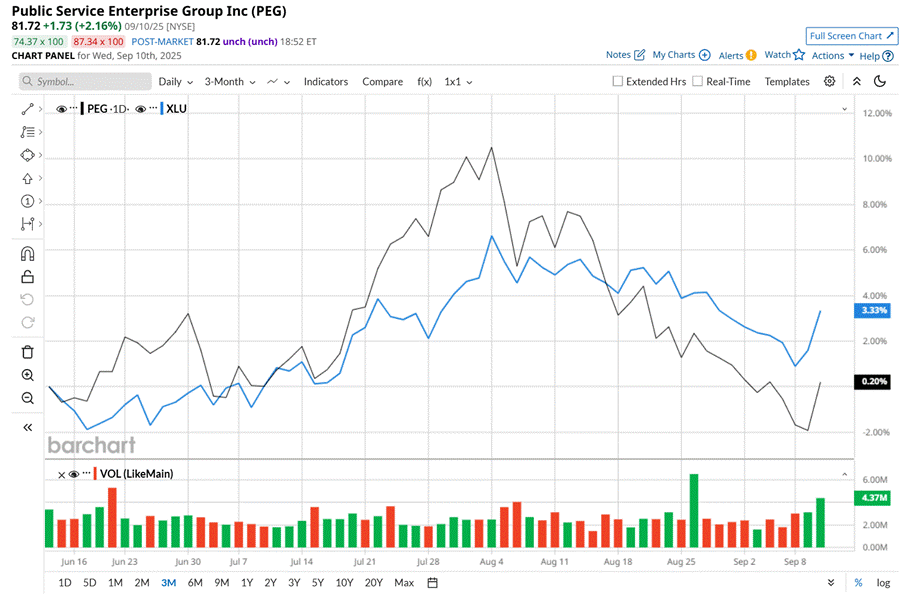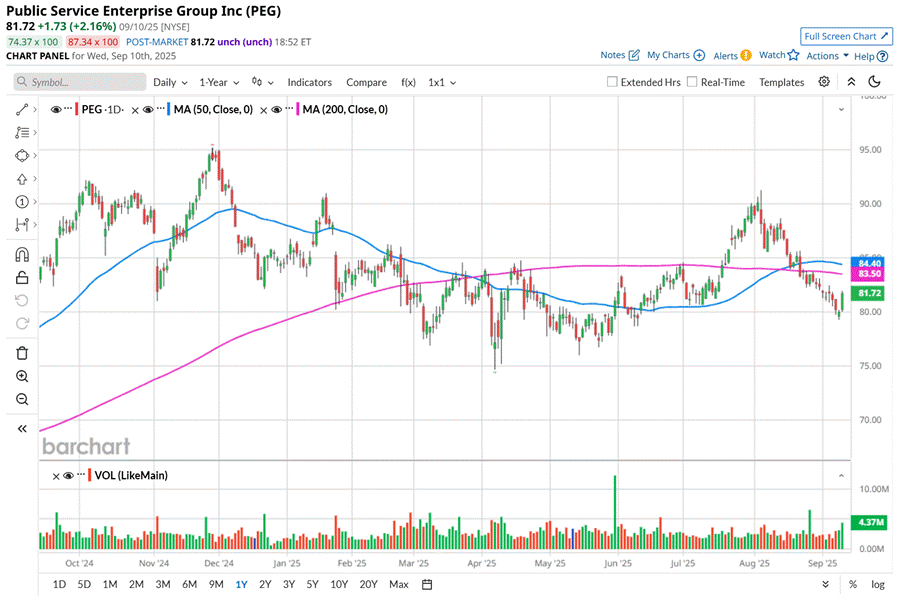
Valued at a market cap of $40.8 billion, Public Service Enterprise Group Incorporated (PEG) is a diversified energy company that primarily generates and distributes electricity and natural gas. The Newark, New Jersey-based company also invests in clean energy initiatives, grid modernization, and energy efficiency programs, positioning itself as a key player in the transition toward a more sustainable energy future.
Companies valued at $10 billion or more are typically classified as “large-cap stocks,” and PEG fits the label perfectly, with its market cap exceeding this threshold, underscoring its size, influence, and dominance within the utilities - regulated electric industry. The company’s strength lies in its stable, regulated utility operations, which provide reliable cash flows and a strong customer base across New Jersey. Additionally, its commitment to sustainability and innovation enhances its long-term growth prospects while meeting evolving customer and regulatory expectations.
This energy company has slipped 14.2% from its 52-week high of $95.22, reached on Nov. 27, 2024. Shares of PEG have gained 2.9% over the past three months, underperforming the Utilities Select Sector SPDR Fund’s (XLU) 4.7% return during the same time frame.

In the longer term, PEG has gained 1.3% over the past 52 weeks, lagging behind XLU's 9.8% uptick over the same time period. Moreover, on a YTD basis, shares of PEG are down 3.3%, compared to XLU’s 11.8% rise.
To confirm its bearish trend, PEG has been trading below its 200-day and 50-day moving averages since late August.

On Aug. 5, PEG delivered better-than-expected Q2 earnings results. The company’s operating revenue increased 15.8% year-over-year to $2.8 billion, handily exceeding consensus estimates by 20.1%. Moreover, its adjusted operating earnings of $0.77 per share improved 22.2% from the year-ago quarter and came in 8.5% ahead of analyst expectations. However, despite these positives, its shares plunged 2.2% following the earnings release. A fall in retail electric sales due to a decline in both residential and commercial & industrial sales might have made investors jittery.
PEG has outpaced its rival, Consolidated Edison, Inc.’s (ED) 7.5% drop over the past 52 weeks. However, it has lagged behind ED’s 8.8% surge on a YTD basis.
Despite PEG’s recent underperformance, analysts remain moderately optimistic about its prospects. The stock has a consensus rating of "Moderate Buy” from the 17 analysts covering it, and the mean price target of $92.35 suggests a 13% premium to its current price levels.







